Content Creator
Ayurveda – a term we mainly know in our western cultures from the wellness sector or in connection with healthy nutrition. However, Ayurveda means one thing above all: listening to your body and its signals.
Ayurvedic doctors are masters in recognizing disturbing signals of your body and thus diagnosing diseases. Mostly these are due to deficits or surpluses in the body. Through the use of natural foods, herbs, massages and exercise, they aim to balance these imbalances. According to Ayurveda, with a balanced lifestyle and conscious nutrition you can prevent diseases from developing in the first place.
But you don’t have to be an Ayurveda expert to increase your well-being in everyday life with the help of Ayurveda. Find out what is behind Ayurveda and strengthen your immune system with our practical tips and tricks:
What is Ayurveda?

More than 5000 years ago the traditional naturopathy Ayurveda found its origin in India. The alternative medicine includes massages, cleansing techniques, nutrition, yoga practice and herbal medicine. Since the origin of the teachings, the knowledge has been passed down through generations. Ayurveda is also gaining more and more importance in the western culture.
The word “Ayurveda” can be translated as “knowledge of long life”. This makes it possible to guess what the traditional teaching is about: a long, healthy life. Ayurveda follows a holistic approach and combines body, mind and environment in its teaching.
Furthermore, Ayurveda is known as an alternative medicine that uses natural means to cure disorders and diseases. However, the aim of the holistic health system is to prevent diseases from developing in the first place. This is also achieved with a balanced lifestyle.
According to Ayurveda, a healthy life begins with nutrition. In contrast to other nutritional concepts, each person is considered as an individual organism. So, if you are looking for a diet with clear rules, you will not find it here. Because according to Ayurvedic teachings, not all foods are equally suitable for everyone.
The three Doshas in Ayurveda – Which type are you?
Ayurveda, similar to the TCM teaching, is based on five elements: Ether, air, fire, water and earth. These are found in the three life energies (= Doshas): Vata, Pitta and Kapha. They are responsible for various processes in the human body. For example, Vata regulates our nervous system, Pitta is responsible for digestion and Kapha is responsible for flexibility and stability.
In addition, according to Ayurveda every person has a certain predisposition. This means that usually one or two doshas are present in our body in higher amounts. Rarely all three are equally strong. Then one speaks of the so-called Tridosha.
We have summarised the main characteristics of the doshas so that you can determine which type you are most likely to correspond to:
Vata types – the flexible ones
Element: air and ether
These types are often slim. In character they are considered particularly creative and lively but can be very moody when it comes to their emotions. When they lose their balance, they tend to be stressed, exhausted, have anxiety, flatulence and constipation.
Pitta types – the fiery ones
Element: Fire and a little water
Pitta types have an average body shape. They are considered to be intelligent, hardworking and decisive. Because of their great temperament they can get angry quickly. If they are unbalanced, they tend to have digestive problems, heart disease and high blood pressure.
Kapha types – the serene ones
Element: Earth and water
Kapha types often have a sturdier physique. They are usually calm, grounded and loyal. With a Kapha surplus, these types tend to be overweight. Typical symptoms of Kapha excess include asthma, depression and diabetes.
What Ayurvedic type are you?
You are not quite sure which Dosha is the one prevailing in your body? Take the constitution test and find out more about your type.
Create balance with opposites
In addition to the distinction of doshas, Ayurveda classifies foods in the diet into six taste directions (rasas): sweet, sour, salty, bitter, pungent and astringent. If all six rasas are included in your meals, this is called a balanced diet.
Just like the doshas, the tastes are also assigned to the five elements. Thus, the doshas and rasas can be assigned to the elements:
| Elements | Doshas | Rasas |
| Earth | Kapha | sweet, sour |
| Water | Kapha, a little Pitta | sweet, salty |
| Fire | Pitta | salty, pungent |
| Air | Vata | bitter, pungent, astringent |
| Ether | Vata | bitter, astringent |
In Ayurvedic teaching the following applies: The same of something increases, the opposite balances out. For example, if you are a Pitta type (fire) and eat a lot of spicy and salty food (also fire), you increase your Pitta energy. On the other hand, you can compensate for an excess of Pitta by consciously choosing sweet, bitter or astringent foods.
This means that Ayurvedic nutrition is very individual and can be perfectly adapted to you with the help of experts. In addition, disorders and resulting diseases are usually caused by an excess or deficit of life energies. Accordingly, a balance can be created by using the right food and spices.
Create a healthy life with Ayurveda
If you want to treat illnesses with the help of Ayurvedic medicine, you need one thing above all: patience. In western medicine we are used to see quick results. When we start taking a medicine, we expect the symptoms to disappear a few days later.
Since the Ayurvedic healing art gets to the root of the problem and not only fights the symptoms, it can take some time before improvement occurs. Because in Ayurveda one knows: a disease does not develop overnight. The same applies to its cure.
However, in order to use Ayurveda to support your health and strengthen your immune system, you do not need expert knowledge. The following basic principles of Ayurvedic cooking apply to all three doshas and can be easily integrated into your everyday life:
Ayurvedic diet for more well-being in everyday life – it’s that simple!
Three main meals per day
Ayurvedic medicine recommends eating three meals a day and avoiding snacks in between. To avoid new food meeting undigested food, you should take a break of about 3-4 hours between meals.
Eating with more mindfulness
Whoever eats consciously brings more mindfulness into his life and learns to interpret the signals of his body better. An ability that is getting more and more forgotten in our western culture.
According to the Ayurvedic diet, you should eat slowly and moderately. This also means that when you eat, you eat and do nothing else on the side. Instead, you should concentrate on the smell, taste and texture of your meal and consciously perceive it.
You should also chew your food well to stimulate saliva production. Your saliva contains enzymes which are important for your digestion.
Support the digestive fire
You should have your main meal at noon, because at this time the so-called digestive fire or “Agni” burns the most. This is also the time when raw vegetables and proteins such as legumes, poultry or fish can be digested easier. In the morning and evening, however, you should choose easily digestible foods.
Hard to digest foods include meat, fish, eggs and fatty foods. In the evening, however, yoghurt and raw vegetables are just as difficult to digest as salad, for example.
Eat warm foods to aid digestion
To further aid your digestive fire: Eat warm foods and avoid ice-cold foods and drinks. You should also avoid alcohol, meat, convenience foods and acidic foods, or consume them only in small amounts.
Warm porridge is a good option for a warm breakfast. Easily digestible meals in the evening, however, are soups or rice with seasonal vegetables. Also, vegetables are better steamed than eaten raw.
With the delicious porridges from Verival you can heat up your digestive fire at breakfast and start the day according to the principles of Ayurveda.
Regional and seasonal food
Ayurvedic food does not mean Asian cooking. Rather, you should use regional and seasonal food from organic cultivation.
Accordingly, the focus of Ayurvedic dietetics is on wholesome foods such as fruits, vegetables, grains and legumes. In contrast, Ayurveda does not use artificial sweeteners or industrially processed foods.
Bring ayurvedic spice into your life
Furthermore, herbs and spices play an important role in Ayurvedic medicine. On the one hand, they are said to have a healing effect, on the other hand they support our body in the correct digestion and absorption of food. In the traditional Indian art of healing it is said that every medicinal plant has an effect not only on the body but also on the mind.
The most important spices in Ayurveda are ginger, cardamom, coriander, cumin, turmeric, nutmeg, cloves, pepper, saffron and cinnamon.
These ten king spices strengthen your immune system and are suitable in moderation for all doshas. They help to decrease bacteria, fungi and viruses, which is why they are used in Ayurvedic medicine. In a diet according to Ayurveda, therefore, as many of these spices as possible should be used.
Finally, we introduce you to two spices which can be combined wonderfully with our Verival porridge:
- Turmeric: A classic among the Ayurvedic spices. As it is known for its antibacterial and anti-inflammatory effects, it is also used in the treatment of acne, for example. A touch of turmeric in your breakfast porridge gives your skin that extra glow. Or start the day with our delicious turmeric latte recipe.
- Cinnamon: Regulates the blood sugar level and keeps it constant. Add a little cinnamon to your Verival breakfast to help prevent hunger pangs in the morning.

Recommended articles






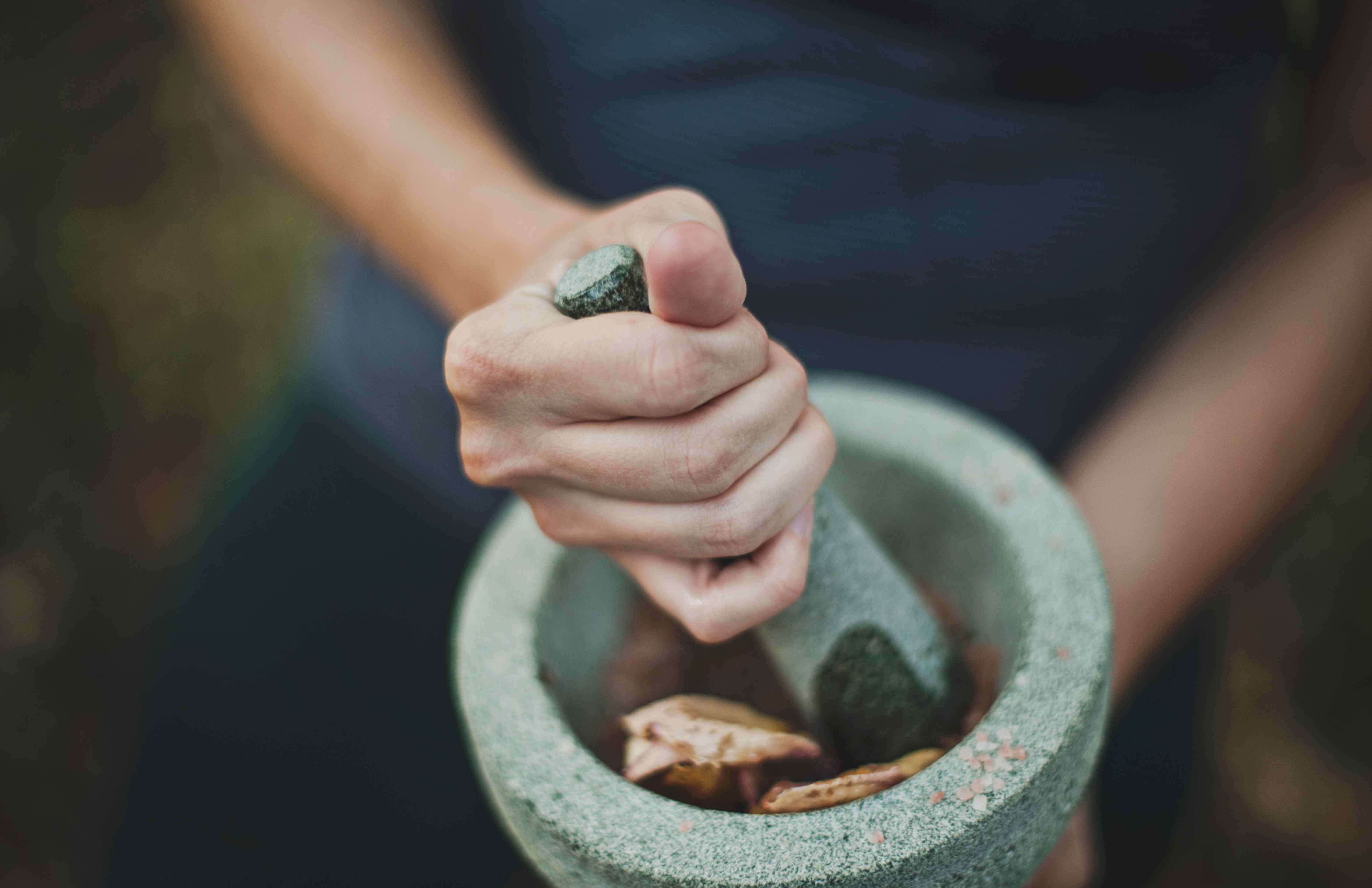





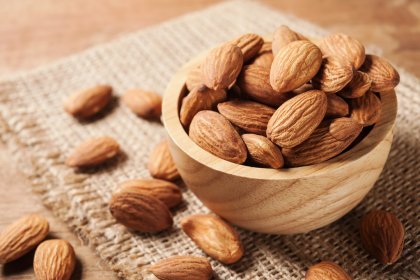



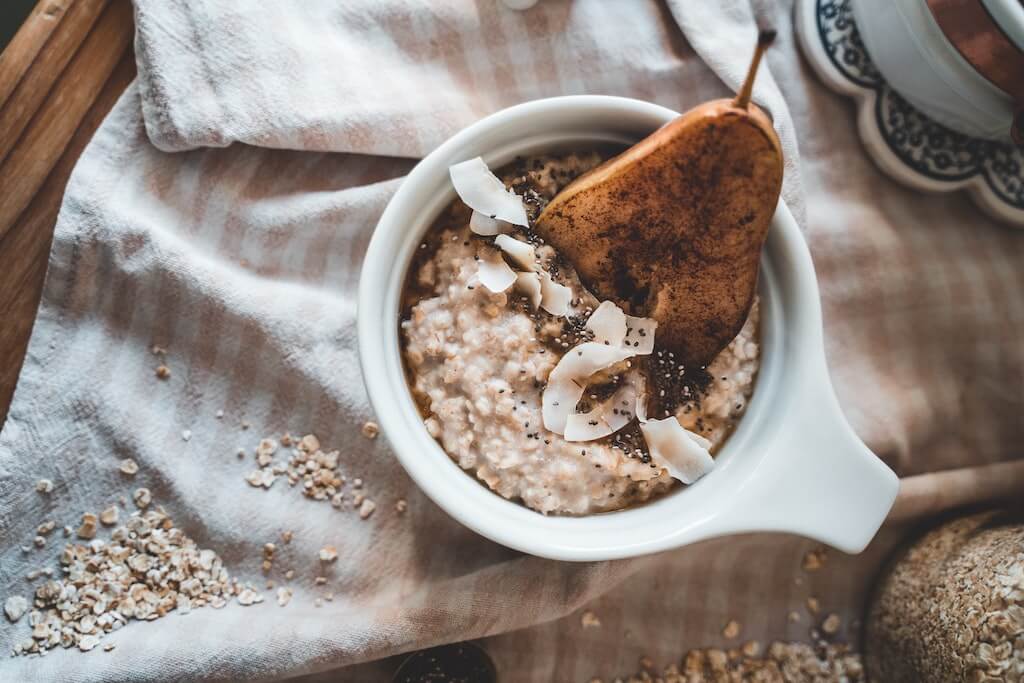
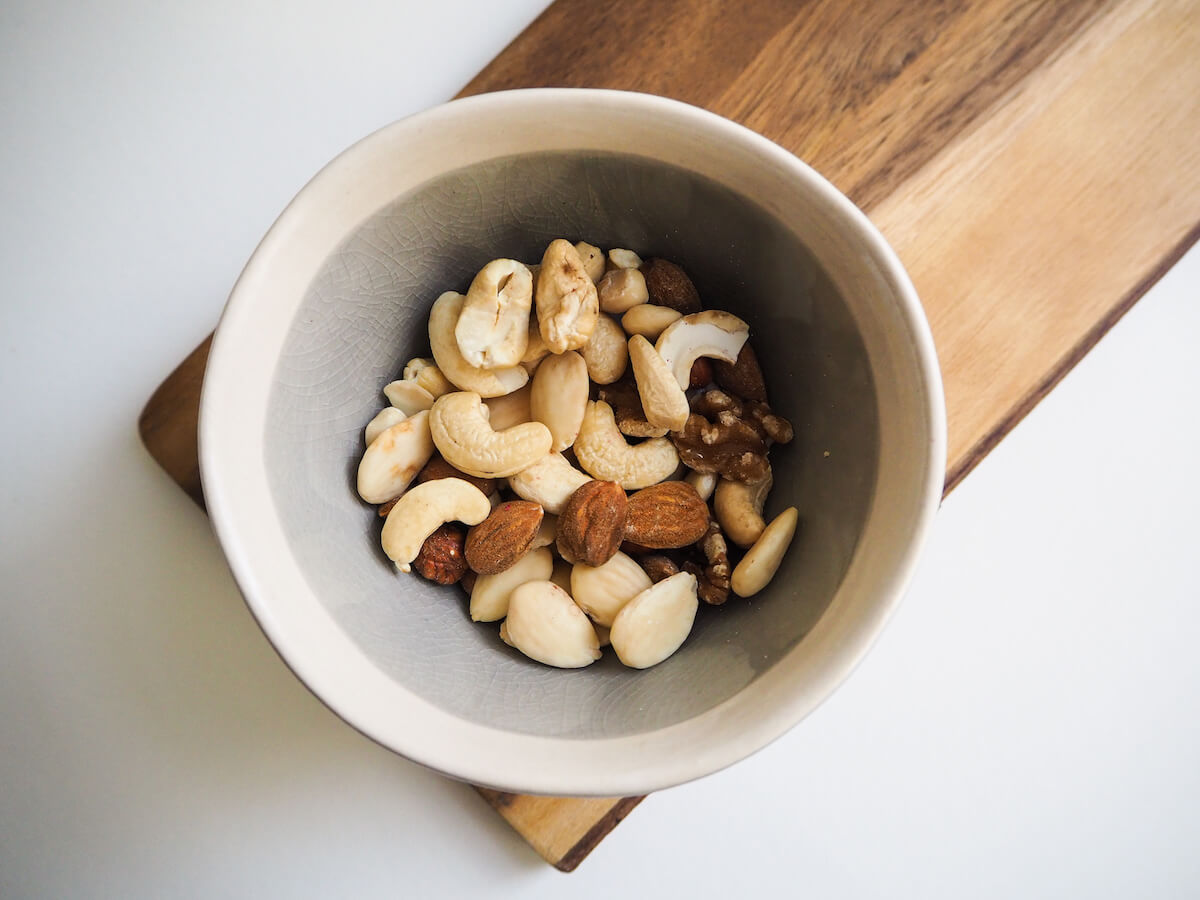

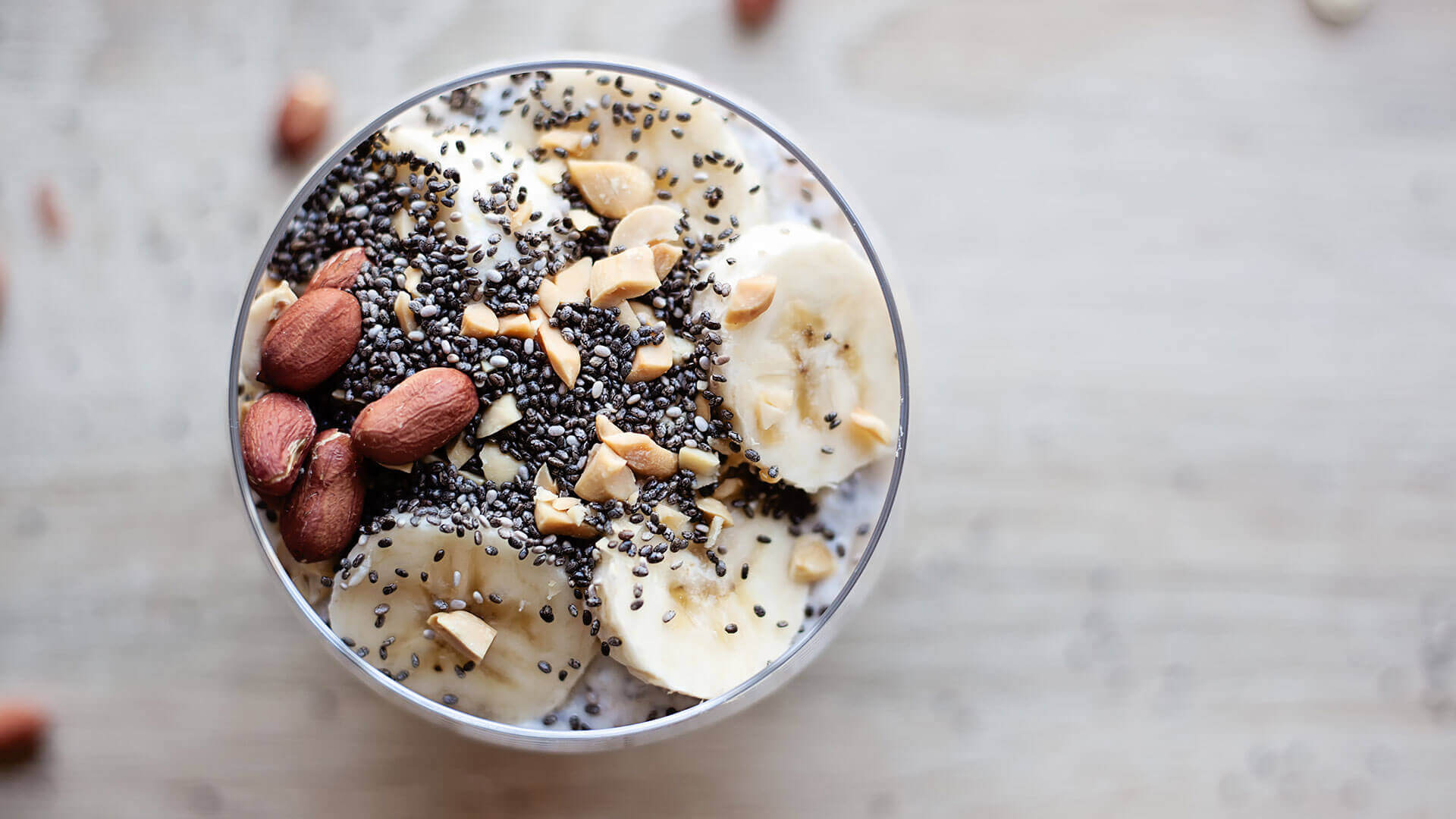

Do you like this post? Share it with friends: